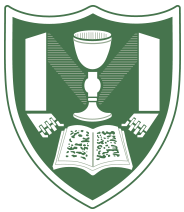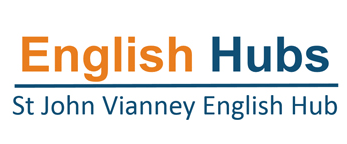
Science
Intent
At SJV we encourage children to cultivate a natural curiosity and inspire them to develop an inquisitive nature that will serve them throughout their lives. Our science curriculum promotes respect for living things, their habitats and non-living specimens and encourages an enquiring mind about the universe we live in. We believe science encompasses the acquisition of knowledge, skills, concepts and positive attitudes. Throughout the programme of study the children will acquire and develop their knowledge, explore and apply scientific skills, as well as learn about scientists and their discoveries. Through the reading of high-quality linked texts, oracy opportunities, metacognition and journaling the children will develop their critical thinking and use ‘words, written or spoken as the building blocks of life’. A range of opportunities will allow the children to develop positive attitudes towards science and build further on their Science capital.
We ensure that working scientifically skills are continually developed throughout their time in school, providing opportunities for the children to apply their knowledge and understanding of science when (including but not limited to):
- Designing and conducting experiments
- Using equipment
- Making observations
- Gathering, recording and presenting data
- Building arguments whilst making predictions and conclusions
- Confidently explaining scientific concepts.
Year group teams work together to find exciting and innovative ways to teach Science encouraging aspiration and independence. All children are given opportunities to succeed in Science, providing the children with a solid foundation of the National Curriculum in preparation for KS3 Science when they leave SJV.
EYFS: Understanding the World
Year 1: Plants; animals; including humans; everyday materials; seasonal changes
Year 2: Plants; animals, including humans; use of everyday materials
Year 3: Plants; animals, including humans; rocks; light; forces and magnets
Year 4: Living things and their habitats; animals, including humans; states of matter; sound; electricity
Year 5: Living things and their habitats; animals, including humans; properties and changes of materials; Earth and space; forces
Year 6: Living things and their habitats; animals, including humans; evolution and inheritance; light; electricity.
Ultimately, our science curriculum strives to deliver our shared school science principles of: solving problems, full of discovery, related to real life, practical, collaborative, seen in action and FUN!
Implementation
Science is taught from a dedicated scheme of work, planned and arranged by the year group teachers. Our aim is to provide all our children with a strategy of achieving a greater depth in the subject.
Through the planning and delivery of each strand we aim to spark the children’s curiosity. We encourage them to problem solve, ask questions and think scientifically around each discovery they find.
Using diagnostic questions helps us find any gaps in every child’s understanding, allowing us to address any shortfall, ensuring all the children receive an in-depth immersion into the subject area.
Every year we build upon the previous year’s learning and skill development. As the children’s knowledge develops and they become more skilled in using the appropriate scientific equipment and collating and interpreting results, our children are able to then draw up their own conclusions, based on their own findings.
Each topic is designed to deliver our shared school science principles of: problem solving, discovery, related to real life, practical, collaborative, seen in action and fun.
Our teachers are confident in modelling how to use scientific equipment in experiments, as well as challenging the children to the outcomes. Continuing development of the teacher skills as well as a strong relationship with the science department at our feeder high school, gives each child the skills and knowledge they require for their transition into KS3.
As part of the school’s extra-curricular activities, a science club is offered to all Y1-6 children, as well as visits to scientific sites and on-site visitors (for example, a travelling Planetarium).
Impact
The successful delivery of science at St John Vianney results in a fun, engaging, high-quality science education, that provides children with the foundations and knowledge for understanding the world. The children see the value of science in solving problems, discovery, it’s application in real life, practicality, collaborative nature, being seen in action and ultimately fun.
Our engagement with the local environment ensures that children learn through varied and first-hand experiences of the world around them. Frequent, continuous and progressive learning outside the classroom is embedded throughout the science curriculum. Through various workshops, trips and interactions with experts, children have the understanding that science has changed our lives and that it is vital to the world’s future prosperity. Children learn the possibilities for careers in science. Our community links with our feeder high school ensures that the children have access to positive role models within the field of science from the immediate and wider local community. This will ultimately build on their science knowledge and capital, from this exposure to a range of different scientists from various backgrounds, all children feel they are scientists and capable of achieving. Children at St John Vianney overwhelmingly enjoy science and this results in motivated learners with sound scientific understanding.
Long Term Plan
Click Here
Science Policy
Click Here

#SJV6OK and #SJV3M have worked together this week to explore light and shadow #SJVScience pic.twitter.com/r2VKx3YnuH
— St John Vianney (@sjvblackpool) April 26, 2023



